Advice to Myself as a Newbie Author
November 22, 2008 by A Slice of Orange in category Archives tagged as Advice to Myself as a Newbie Author, Charlene Sandsby Shauna Roberts
http://ShaunaRoberts.blogspot.com
Today’s Guest: Charlene Sands
Charlene Sands writes Silhouette Desires and Harlequin Historicals. To date, she has penned 25 romances, and her books have won the National Readers’ Choice Award and The Cataromance Reviewers Choice Award, and, this year, she won the 2008 Booksellers Best Award.
Her current release, Do Not Disturb Until Christmas (Silhouette Desire), a Romantic Times Top Pick, is a Borders/Waldenbooks and eHarlequin.com bestseller for November. Her next book, Reserved for the Tycoon (Silhouette Desire), finishes the series in February 2009. Presently she is working on the Texas Cattleman’s Club continuity for Desire.
Charlene, if you could travel back in time to before you were first published, what advice would you give yourself?
 When it comes to writing, I have my ALWAYS and NEVER rules to live by.
When it comes to writing, I have my ALWAYS and NEVER rules to live by.
ALWAYS write. There are so many distractions now with the Internet and family issues, but it’s imperative to make writing one of the priorities in your life. You can’t sell if you don’t write. Enjoy the process and find ways to add extra writing in. There is more time in the day than you think. As I write this blog, I have the kitchen timer set for 20 minutes. I’m early getting ready for an appointment and so here I am at the computer, getting those extra few minutes in before I have to leave. Remember, if you are serious about being published, then you have to write!
NEVER allow yourself more than a day or two to bemoan a rejection. Yes, you’re allowed to feel badly and yes, you’re allowed a few moments of depression. Heck, you’ve earned it. You worked hard on that last manuscript and put your hopes and dreams into it as well. Give yourself a day or two to recover. Then forge on. Pick yourself up and most importantly learn from the comments the editor took the time to write. If you’re given advice and tips, by all means take it to heart. Implement their feedback into your next story and keep at it.
ALWAYS take workshops and attend lectures about craft. After penning 25 published novels, I’m still learning. I learn something new and different each time I listen to a lecture or read a good book. Try to figure out at least one important way to implement what you’ve learned into your writing. Look for ways to constantly improve. Be honest with yourself. If you know your weak points, then by all means, try to fix the problem. Authors are very generous with their knowledge. If you are lucky enough to attend classes, and there are many out there, both online and in person, then absorb as much knowledge as you possibly can from reliable sources.
 NEVER allow jealousy and envy to creep into your daily life. Remember, you’re only in competition with yourself. I live by this creed and feel truly happy when others I know make great strides. They’ve earned it and you will too. If I can say one good thing about competition, it’s that it makes me try harder to be successful. It’s okay to have the “If she can do it, so can I†attitude as long as it’s not mean-spirited.
NEVER allow jealousy and envy to creep into your daily life. Remember, you’re only in competition with yourself. I live by this creed and feel truly happy when others I know make great strides. They’ve earned it and you will too. If I can say one good thing about competition, it’s that it makes me try harder to be successful. It’s okay to have the “If she can do it, so can I†attitude as long as it’s not mean-spirited.
ALWAYS know your own limitations. Here’s where honesty is key. Vampires are hot, hot right now. But I know in my heart I wouldn’t be happy writing those types of stories. Think about what you truly enjoy writing. It will be transparent in your writing style. You know when your story is going well. You know your comfort level, and thus you’ll know your own limitations. They say, write what you know, but I say, write what you love! It may be one and the same, but maybe not. No one knows your limitations better than you.
NEVER stop reading books that inspire you. Find the time and enjoy those precious moments you tuck away for both fun and inspiration. Whether it’s reading books about craft or motivation or simply diving into a new novel, keep reading. It’s something I try to do, but I will admit that I don’t read as many books as I used to. My day is so busy writing, promoting, and answering mail that often my TBR (to be read) pile suffers. So with this one, do as I say, not as I do. ☺
ALWAYS know your target line or publishing house. Know the guidelines and word count. Know the editors of the line. You can’t sell your story to an editor if you’re not sure your story fits into the framework and guidelines they are looking for. The best way to know if your story is viable is to read and read and read some more from that line. Know the authors and what kind of story works. If it’s category, are you writing a sexy Blaze or a home-and-hearth Special Edition? If it’s a romantic comedy or a thriller, are you sending to houses you know for certain publish those types of stories?
NEVER submit anything that isn’t your own personal best. Be professional. Send in a clean and neatly polished manuscript and know that what you’re sending to an editor is something you have struggled to make perfect. They will note your efforts and pay attention to details. Even if you don’t sell that one, they will regard your work with respect and look forward to seeing your next project.
 ALWAYS experience life! You can’t write about life if you’re stuck behind a computer every day. You need to get out, observe your surroundings, take trips, and make new friends. Each day is a new chance to learn and improve. You’ll revitalize your writing by your new experiences.
ALWAYS experience life! You can’t write about life if you’re stuck behind a computer every day. You need to get out, observe your surroundings, take trips, and make new friends. Each day is a new chance to learn and improve. You’ll revitalize your writing by your new experiences.
I’m always amazed what I learn from or about people when I do something new. Case in point, I recently took dance lessons at Arthur Murray Studios for my daughter’s wedding. It was a great experience to share with my husband and daughter, so I’ll always have fond memories. And during that time, I was invited to write a book in a continuity series for Silhouette Desire. You can guess my surprise when I learned that the heroine in my story owned a chain of dance studios! I had all the firsthand knowledge I needed to write that story with authenticity, and if I needed any advice, I could simply call upon my dance instructor. Sometimes, life is so pleasantly surprising.
✥✥✥✥✥
You can visit Charlene and enter her Suite Secrets Contest at http://www.charlenesands.com. Her newest book, Do Not Disturb Until Christmas, is available in stores and online at Amazon.com and Barnes & Noble.
What is Romance
November 19, 2008 by Marianne H. Donley in category Archives tagged as Member At LargeMonica Stoner, Member at Large
How many of us have heard disparaging remarks concerning Romance? We defend our chosen genre as obviously the most popular and the money maker for many book stores, and point out we write to bring pleasure to a large reading audience. How often do we define our books instead of defending them?
To write Romantically is to show life as better than it is. Mildly attractive becomes stunningly gorgeous. Successful businessman becomes a leader of industry. Feature writer becomes an award winning journalist. Story telling, yarn spinning at its finest and also writing Romantically.
Some authors manage to write successfully about the less glamorous aspects of our daily lives. Disease, poverty, injury take center stage in their books. But no one is pluckier and more beloved than their heroine, no one falls harder or rises further, drawing the reader along for the journey. We hope we can be as tenacious, as graciously successful, as these heroines.
When it comes to the relationship aspect of these books, once again larger than life trumps the every day. One of my favorite romances was about a small town veterinarian and a visiting young woman who has to work through a personal trauma. Standard story, boy meets girl, the feel attraction, their relationship has its ups and downs, ending in marriage. What takes the story beyond the mundane is the character of the veterinarian and the extreme trauma the young woman has experienced, plus her own shy nature, plus a domineering mother. What a lot she has to overcome and she does it so in a fashion we could only hope to emulate all the while maintaining her near translucent skin without a drop of facial cream.
In the real world it=s not unusual for people to meet and fall in love, a high percentage experiencing some form of Happily Ever After. How many of even these exemplary men manage to remember birthdays without a reminder and think to move the couch when (or if) they sweep? Just find one who can replace the toilet paper roll. Now that would be writing about life better than any of us could ever imagine.
0 0 Read moree-maginings: Still Lovin’ My Kindle
November 16, 2008 by A Slice of Orange in category Archives tagged as Amazon, e-maginings, Kindle
Since Oprah declared the Amazon Kindle one of her favorite things, people wanting to buy the device are having to sait 2-3 weeks to get one just like I did last year.
I’ve had mine for almost a year now and I still love it. My acupuncturist lusts after mine, esp. since I showed him how to search the Kindle store from the exam room and we discovered that the Shanghai Daily is now available to Kindle users, along with 27 other newspapers, 18 magazines and 2 dozen or so blogs. And that’s in addition to the almost 200,000 books available for the Kindle.
I don’t know yet if the Kindle will be the “killer device” e-book readers have been waiting for, but it’s the best one I’ve ever found.
Linda
2 0 Read moreFred, Ginger & Me
November 13, 2008 by Marianne H. Donley in category Archives tagged as Bobbie Cimo, Eye on Hollywoodby Bobbie Cimo
As I left my office to go to lunch the other day, it dawned on me all the things that I’ve taken for granted while working at CBS. Most people walking down a busy corridor will bump into another employee or an occasional mail cart. As for myself, if I don’t watch it, I can easily be hit by a brand new car or SUV that’s being pushed down the hall to The Price is Right by a stage hand not paying attention. Or perhaps when venturing up to Accounts Payable, it’s the norm for me to see a fully furnished room being pulled down the hall, attached to a tugger (mini tractor). And if by chance someone dies on the soaps, it’s not unusual to see a casket or headstone stored in the Prop Room that I walk through every morning to get my coffee. Nor, to say hi, to a guy I’ve never seen before, as he heads towards the commissary, wearing only his pajamas and slippers.
Most of the time this is all very amusing, except for the time (before cell phones) when I stepped inside a public phone booth to make a personal call, only to find out I was standing inside a prop. Not amused.
Some people get their fresh air by going to a park on their lunch hour, whereas I just go up to the roof top and then about fifty feet from the helicopter pad, flop myself down into my favorite lounge chair. I usually eat my lunch while enjoying the view of the Hollywood sign that’s facing me. It’s the same sign I’ve seen a thousand times in movie magazines while growing up…only now it’s real and in person. And after a quick lunch, I’m down for my forty minute powernap before heading back to work.
Those are some of the things that I’ve taken for granted while working at CBS, but stepping outside of my office and finding the famed Ginger Rogers seated in a wheelchair, well, that was a surprise. At the time, my office was right down the hall from Stage 46, where they were taping the British version of “This is Your Life,†honoring Ann Miller, and Ginger was one of the guests. Not only was she in a wheelchair and overweight, but she wore tons of make-up and her hair was dry and over bleached. It saddened me to see this legendary star, who at this time was in her early eighties, in this condition. Knowing she had no husband or children, I did wonder who was in charge of taking care of her.
I only recently found out she was of the Christian Science faith and didn’t believe in going to doctors or in traditional medicines. I also learned that she had an unusual amount of peach fuzz on her face and was very sensitive about it, but refused to have it removed. And that was the reason for the heavy make-up.
Because of all the flutter around her preparing her to go on stage, I never got a chance to talk to her. If I had, I would have told her how much I enjoyed all of her body of works. And I probably would have shared with her the fact that as teenager, my mother was so impressed with her, she took the name of Ginger, herself. A name she went by her entire adult life.
Working on the AFI’s, honoring Fred Astaire, was one of my favorite assignments. Besides keeping track of show cost I was the go- to- girl for almost everything else. If dancer Gregory Hines wanted his red shoes polished before doing his routine, he’d hand them over to me. If Jimmy Stewart needed his parking ticket validated, I was the person to see. And the best of them all–when Bette Davis lost the belt to her rain coat, she came to me.
Like all of the AFI shows, there were plenty of film clips to be viewed during rehearsal. And as much as I have enjoyed all of them from various recipients, nothing was more fabulous than those from the Fred Astaire and Ginger Rogers movies. I don’t think there was a person working the show who didn’t have this sudden urge to do a little Fred or Ginger themselves…some even gliding across the floor, making their way to the restroom.
At the time, Fred, like Ginger, was in his early eighties. He was thin and frail looking, and there were times when he would unexpectedly doze off at the table. But when they called his name, nobody showed more pep or vigor than he did when he sprang to his feet and ran up the stairs to accept his award.
Working with him was a joy. He was a true professional who asked for no special treatment and who was very sweet to everyone around him. At the end of our time together, I asked him for an autograph–not for myself, but for my mother, “Gingerâ€.
3 0 Read moreAffiliate Links
A Slice of Orange is an affiliate with some of the booksellers listed on this website, including Barnes & Nobel, Books A Million, iBooks, Kobo, and Smashwords. This means A Slice of Orange may earn a small advertising fee from sales made through the links used on this website. There are reminders of these affiliate links on the pages for individual books.
Search A Slice of Orange
Find a Column
Archives
Featured Books
DARK WINE AT SUNRISE
A seductive spy. An alpha vampire. A deadly conspiracy determined to kill them both...
More info →A LITTLE CHRISTMAS MAGIC
Christmas in Marietta, with all the trimmings, may be just the ticket.
More info →GOD’S BOMBSHELL: LIVING A BEAUTIFUL SINGLE LIFE
If you're looking for tips on how to find a nice Christian husband, don't read this book.
More info →Newsletter
Contributing Authors
Search A Slice of Orange
Find a Column
Archives
Authors in the Bookstore
- A. E. Decker
- A. J. Scudiere
- A.J. Sidransky
- Abby Collette
- Alanna Lucus
- Albert Marrin
- Alice Duncan
- Alina K. Field
- Alison Green Myers
- Andi Lawrencovna
- Andrew C Raiford
- Angela Pryce
- Aviva Vaughn
- Barbara Ankrum
- Bethlehem Writers Group, LLC
- Carol L. Wright
- Celeste Barclay
- Christina Alexandra
- Christopher D. Ochs
- Claire Davon
- Claire Naden
- Courtnee Turner Hoyle
- Courtney Annicchiarico
- D. Lieber
- Daniel V. Meier Jr.
- Debra Dixon
- Debra H. Goldstein
- Debra Holland
- Dee Ann Palmer
- Denise M. Colby
- Diane Benefiel
- Diane Sismour
- Dianna Sinovic
- DT Krippene
- E.B. Dawson
- Emilie Dallaire
- Emily Brightwell
- Emily PW Murphy
- Fae Rowen
- Faith L. Justice
- Frances Amati
- Geralyn Corcillo
- Glynnis Campbell
- Greg Jolley
- H. O. Charles
- Jaclyn Roché
- Jacqueline Diamond
- Janet Lynn and Will Zeilinger
- Jaya Mehta
- Jeff Baird
- Jenna Barwin
- Jenne Kern
- Jennifer D. Bokal
- Jennifer Lyon
- Jerome W. McFadden
- Jill Piscitello
- Jina Bacarr
- Jo A. Hiestand
- Jodi Bogert
- Jolina Petersheim
- Jonathan Maberry
- Joy Allyson
- Judy Duarte
- Justin Murphy
- Justine Davis
- Kat Martin
- Kidd Wadsworth
- Kitty Bucholtz
- Kristy Tate
- Larry Deibert
- Larry Hamilton
- Laura Drake
- Laurie Stevens
- Leslie Knowles
- Li-Ying Lundquist
- Linda Carroll-Bradd
- Linda Lappin
- Linda McLaughlin
- Linda O. Johnston
- Lisa Preston
- Lolo Paige
- Loran Holt
- Lynette M. Burrows
- Lyssa Kay Adams
- Madeline Ash
- Margarita Engle
- Marguerite Quantaine
- Marianne H. Donley
- Mary Castillo
- Maureen Klovers
- Megan Haskell
- Melanie Waterbury
- Melisa Rivero
- Melissa Chambers
- Melodie Winawer
- Meriam Wilhelm
- Mikel J. Wilson
- Mindy Neff
- Monica McCabe
- Nancy Brashear
- Neetu Malik
- Nikki Prince
- Once Upon Anthologies
- Paula Gail Benson
- Penny Reid
- Peter Barbour
- Priscilla Oliveras
- R. H. Kohno
- Rachel Hailey
- Ralph Hieb
- Ramcy Diek
- Ransom Stephens
- Rebecca Forster
- Renae Wrich
- Roxy Matthews
- Ryder Hunte Clancy
- Sally Paradysz
- Sheila Colón-Bagley
- Simone de Muñoz
- Sophie Barnes
- Susan Kaye Quinn
- Susan Lynn Meyer
- Susan Squires
- T. D. Fox
- Tara C. Allred
- Tara Lain
- Tari Lynn Jewett
- Terri Osburn
- Tracy Reed
- Vera Jane Cook
- Vicki Crum
- Writing Something Romantic
Affiliate Links
A Slice of Orange is an affiliate with some of the booksellers listed on this website, including Barnes & Nobel, Books A Million, iBooks, Kobo, and Smashwords. This means A Slice of Orange may earn a small advertising fee from sales made through the links used on this website. There are reminders of these affiliate links on the pages for individual books.



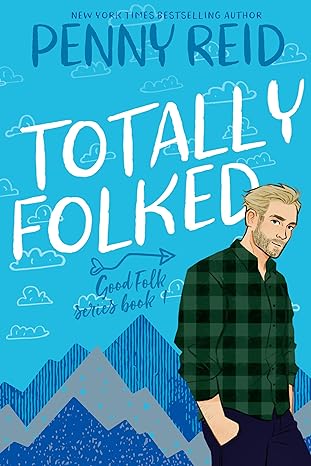







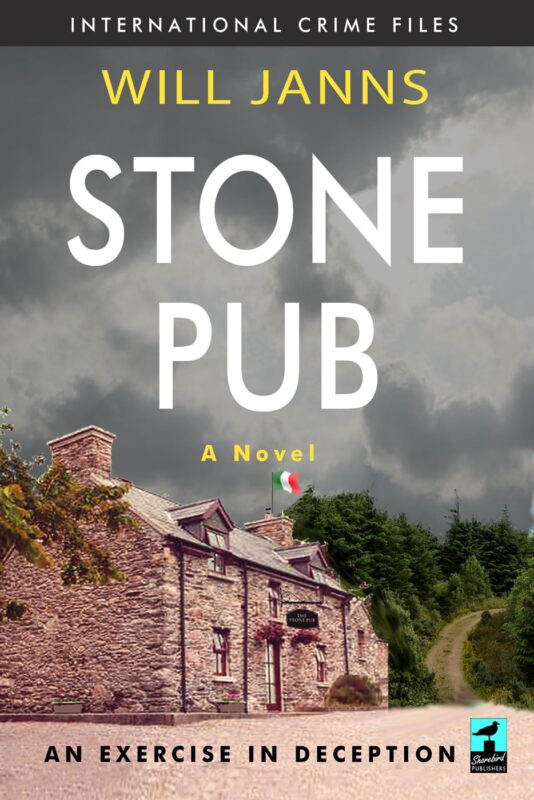
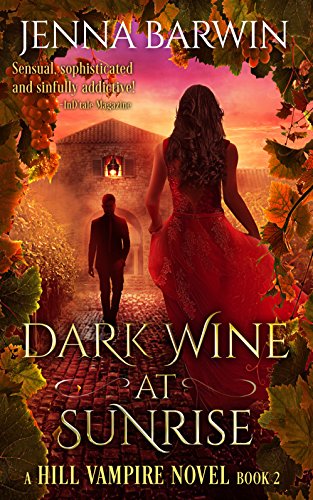
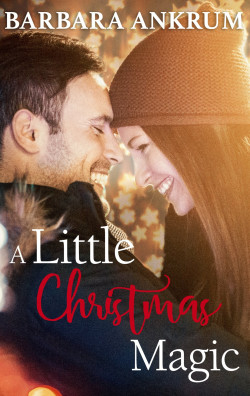

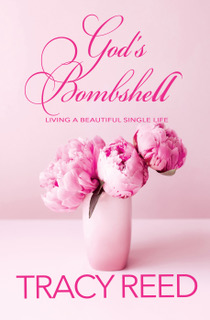


























Launch of Tell Harlequin.com – Online Reader Panel
November 24, 2008 by A Slice of Orange in category Archives tagged as Comments, Harlequin, Isabel Swift, Reader Panel, Silhouette, Tell HarlequinHere’s information from a recent press release on a program Harlequin is launching to open the door to reader’s comments and suggestions:
http://www.TellHarlequin.com/ gives readers the opportunity
to contribute to the future of romance reading.
Toronto, ON (August 18, 2008) – Harlequin Enterprises Limited, the global leader in series romance and one of the world’s leading publishers of women’s fiction, announced today the launch of Tell Harlequin (www.TellHarlequin.com)—an online advisory panel that allows readers input into the direction of future novels by voicing their opinions and sharing their book experiences directly with the publisher.
Tell Harlequin is an online advisory panel designed to enhance Harlequin’s relationship with its readers through an ongoing dialogue whose insights will help guide the evolution of the publisher’s business and allow Harlequin to publish the best in women’s fiction. Participants on the Tell Harlequin panel can make their voices heard on topics such as cover designs, new
miniseries ideas, new series concepts, new promotional ideas and more. The staff at Harlequin will then consider Tell Harlequin suggestions along with the publisher’s own plans as it develops editorial for the future. Contributors to Tell Harlequin receive free Harlequin novels and sneak peeks at upcoming books, participate in entertaining online surveys and exchange opinions and ideas with other readers.
For more information please go to http://www.TellHarlequin.com/.
Hope you enjoy the telling!
Best,
Isabel Swift
0 0 Read more